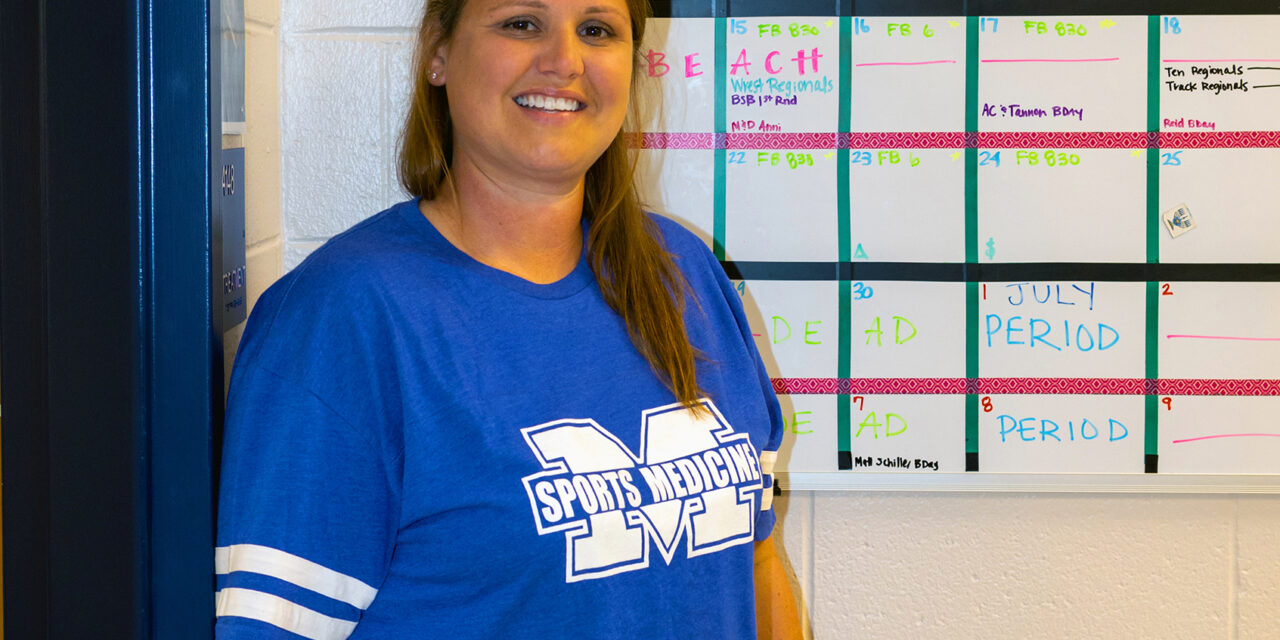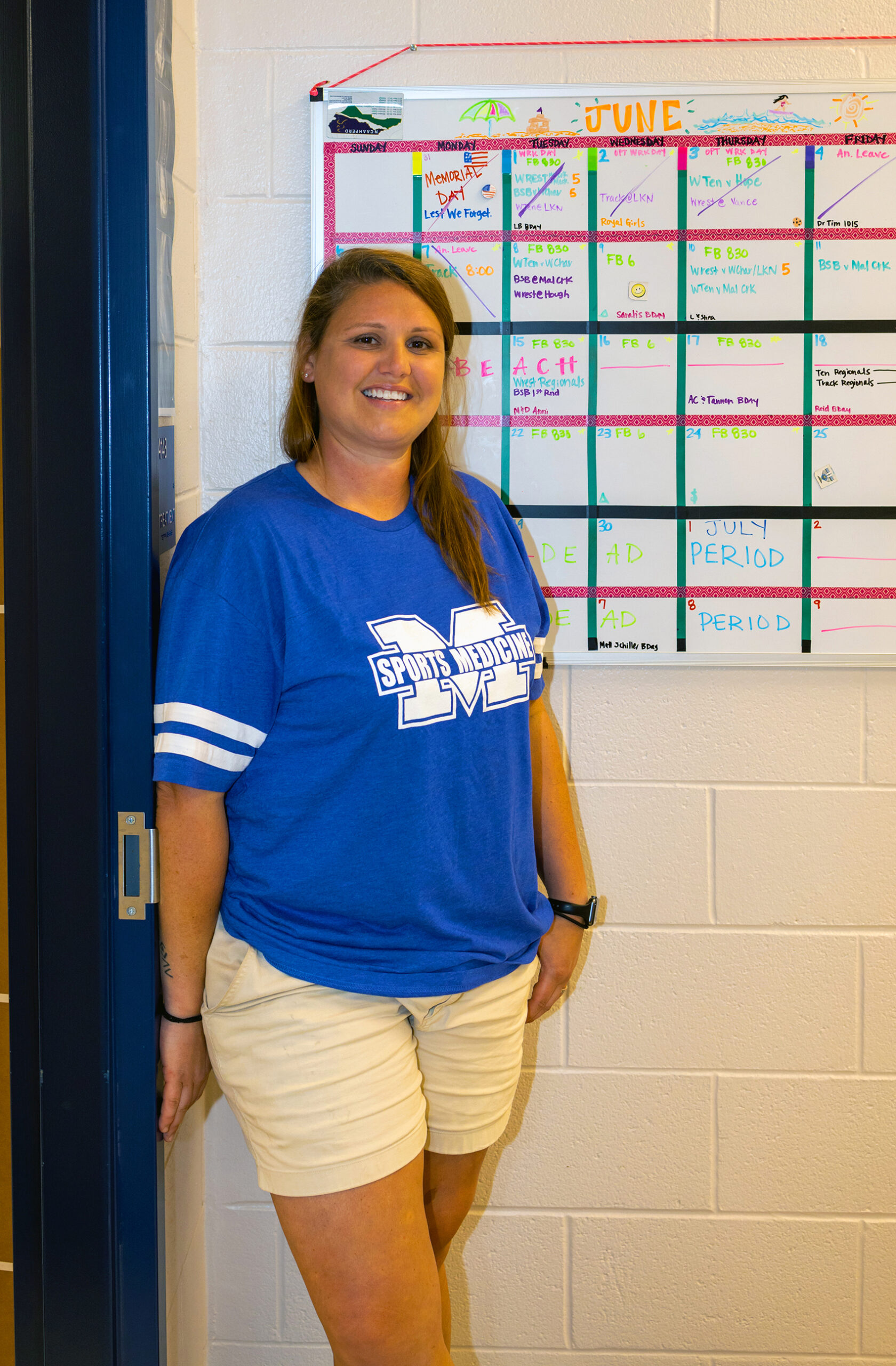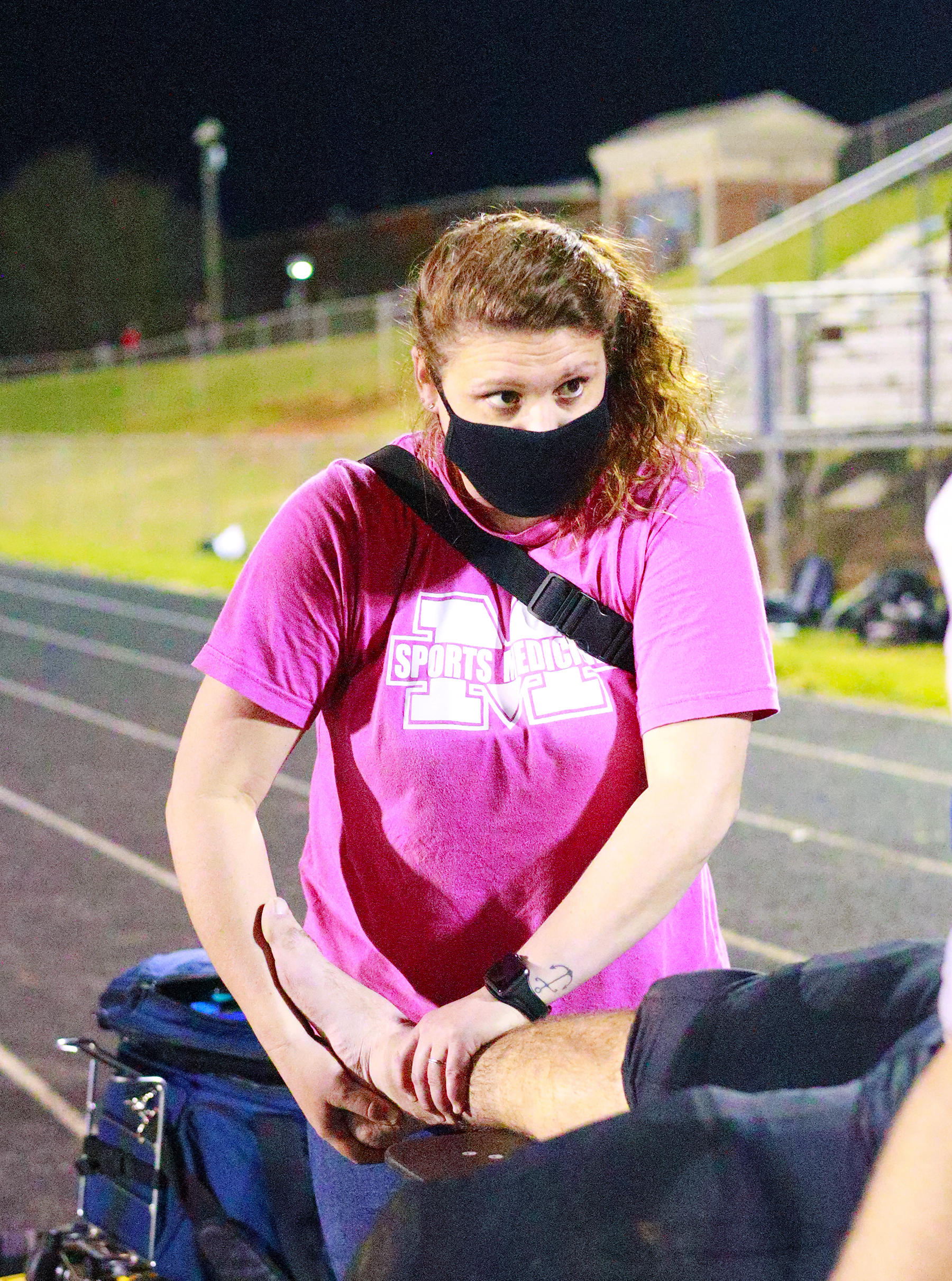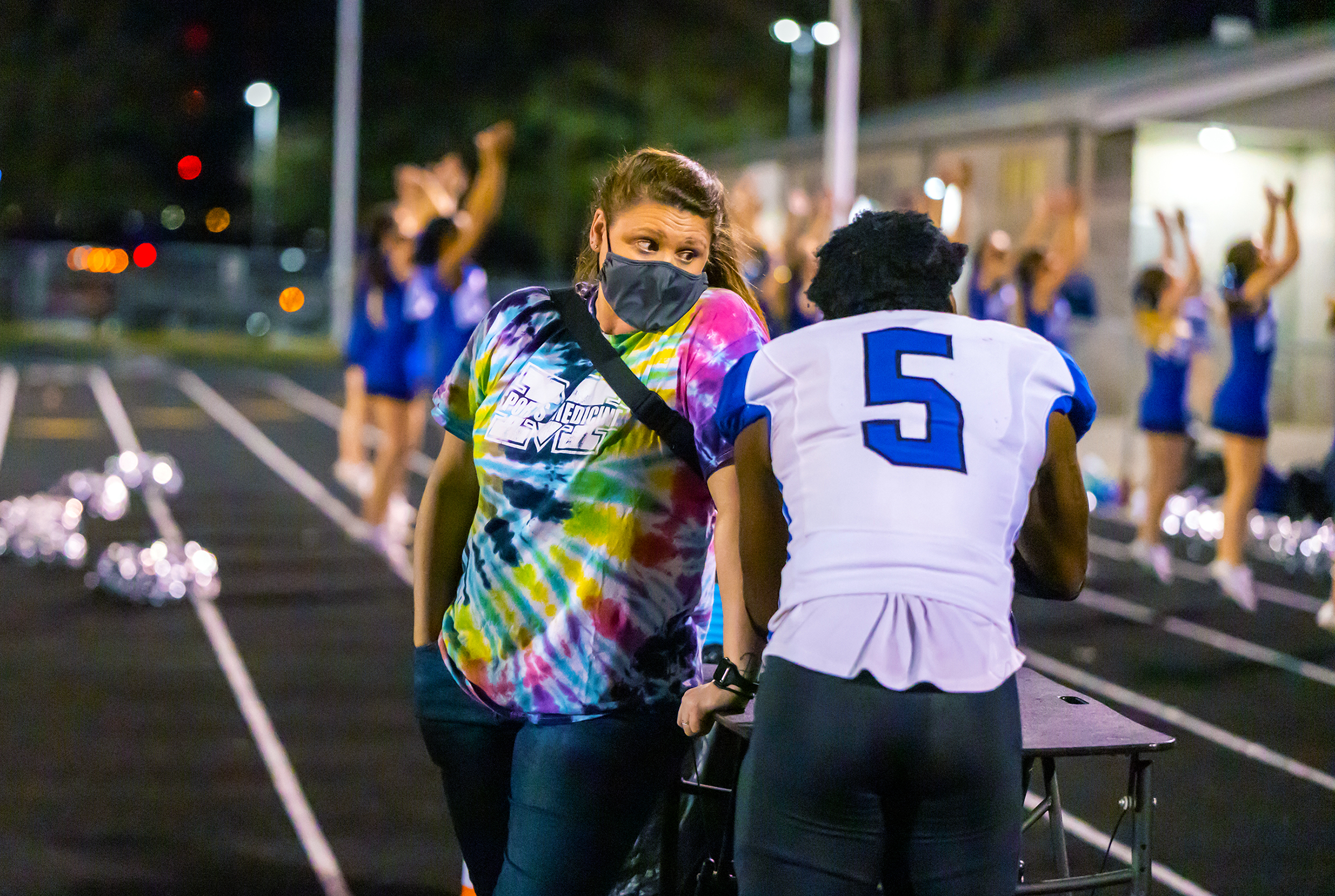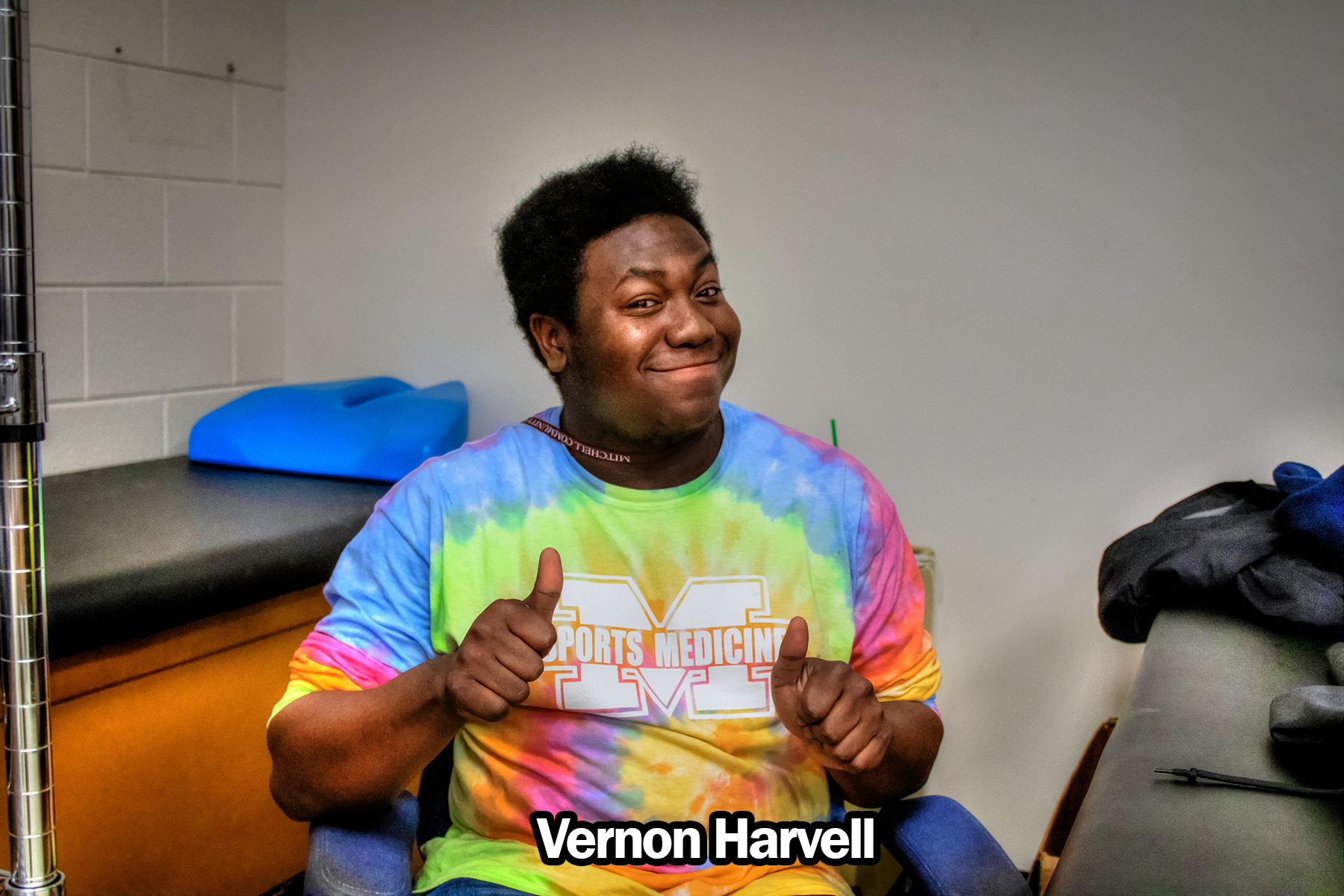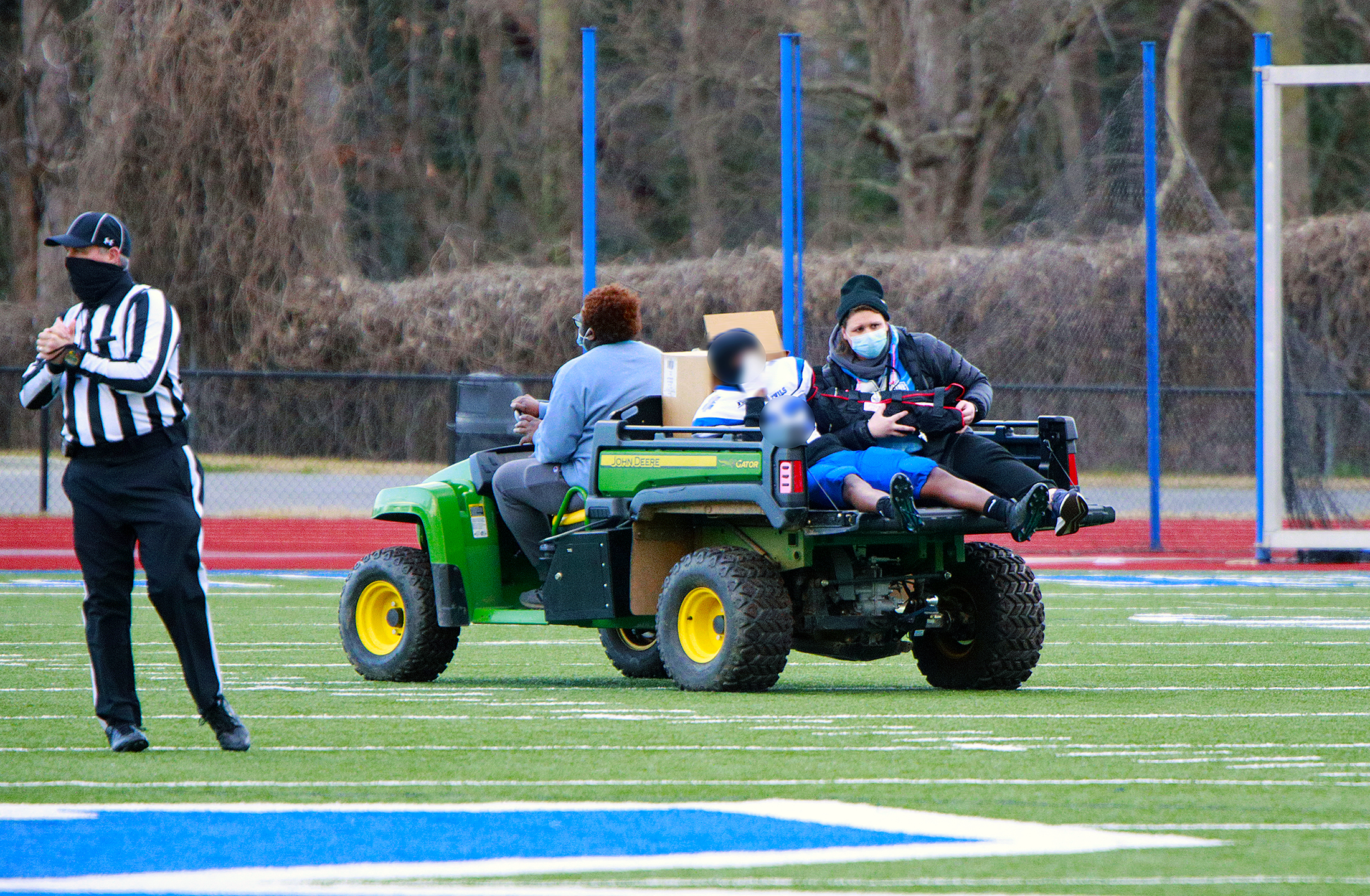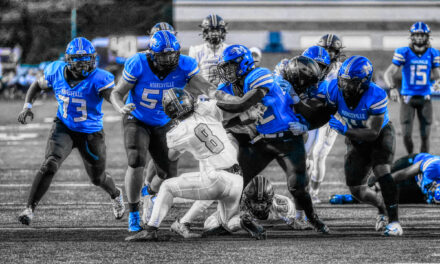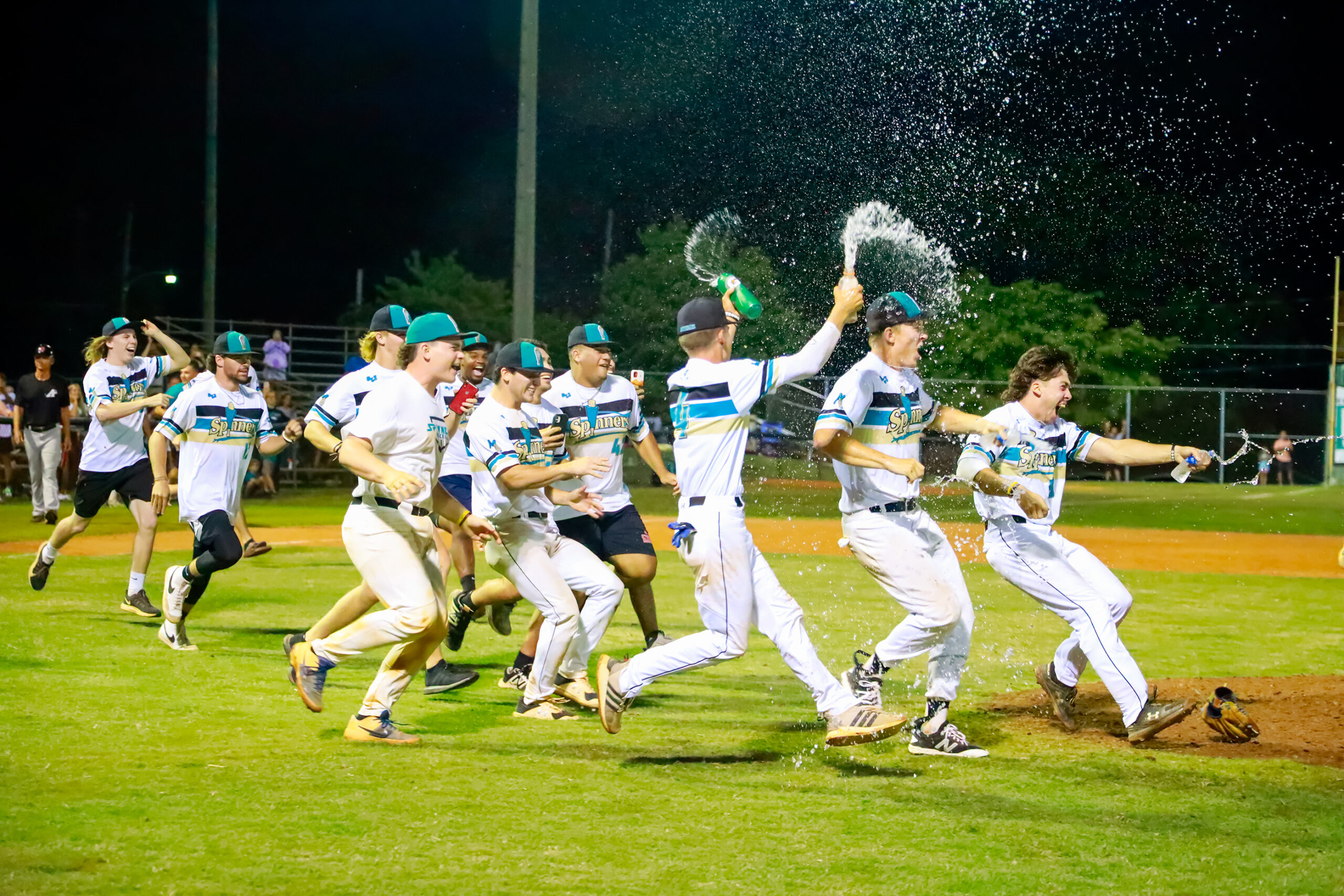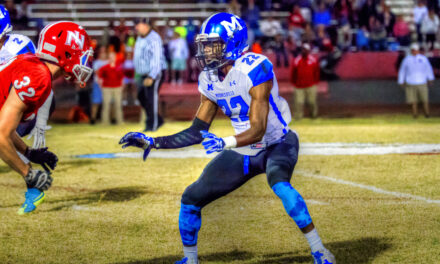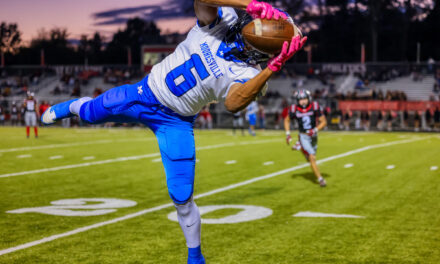Mooresville High School takes a lot of pride in their Sports Medicine department with good reason.
Hannah Pierce and her crew.
Recently many had the opportunity to read a fantastic interview with her, and how she handles the day-to-day life of head athletic trainer and the sudden COVID pandemic.
If you are a parent of a student athlete at Mooresville High School, this is a must-read interview for you. If we here at Mooresville Sports can do one thing for your child, besides all the photos and media, it would be knowing you read this article. It helps explain the rigorous process and number of athletes that need to be treated, along with the procedures that need to be followed.
As a staff writer of Mooresville Sports, I once was this parent. My student athlete did suffer injury and was treated by this same staff. Early on in his career, literally one week into football in August, I got to see firsthand how good sports medicine really was.
I remember saying to myself… I wonder if Hannah can help me sell websites. This was one MOTIVATED person. The type of person that after spending 15 minutes around you realize they can do anything. It is a rare moment and doesn’t happen often in our lives, but she is that person. There’s a seriously genuine approach to sports medicine and to sum it up easily, they are not messing around. Even after knowing Hannah for 10 years plus now, and seeing her every day, she cannot and will not disclose injury information on any athlete. Sure, you say … big deal… but this is just the start of a long list of procedures put in place to protect your child, and they are followed to a T no matter who it is. Strict confidentiality is only the start of the process.
There are specific tests that can be done on an athlete in the field to get a general idea the extent of an injury. Technology has helped a lot over time, but sports medicine has come a long way just the same. Certain tests can dictate whether one needs immediate ER treatment, simple RICE (Rest, Ice, Compression, Elevation) or a follow up Dr visit. Hannah Pierce is never going to tell you not to take your child to see a Dr. but from my experience, she has saved me thousands of dollars. Mostly because of that panic moment where you think your child has some major issue only to realize it was a minor sprain. More often than not, the Dr. will tell you the same exact thing.
The care these student athletes receive is much the same as a high-level college football program. I’ve had the pleasure of working with a major college university and major league baseball team. In both cases, Hannah could easily hold her own in both sports medicine departments, and possibly be good enough to lead the entire department. I’m by no means an expert in the hiring process of athletic trainers, I’ve simply been a part of these organizations for many years. It takes a certain type of person with many high qualities. You will understand why she is still here at Mooresville in her interview, but she could be anywhere. Her motivated soul and drive for excellence is at a level so high you can tell she truly loves what she does.
Mooresville Sports would like to thank Heather Burleson for her help in featuring this article.
Here is the full piece interview conducted by a combination of Mooresville Sports and the Mooresville Tribune:
Hannah Pierce
Head Athletic Trainer for Mooresville High School
Sports Medicine Teacher
MT: What are your official qualifications?
A nationally certified athletic trainer which is a 4-year medical degree. I am also licensed to practice as an athletic trainer in the state of North Carolina. What separates me from other athletic trainers is that I also have a teaching degree.
MT: Describe for our readers an average day in your life.
HEP: There is no short answer to this question. During the fall I teach two classes and in the spring I teach three classes. I mostly teach sports medicine classes and sometimes fitness classes. My planning periods are in the morning- this is where I do a variety of things. I pull student athletes into the athletic training room from all sports and handle possible treatment or new injuries from the previous day. I also file, input, scan, and do my best to keep track of paperwork during this time. Almost all sports teams go through impact testing as well, commonly referred to as concussion testing- I use this time to complete testing.
On any given day I may be at the school anywhere from 6:00am to 11:00pm (and sometimes even later) Football season requires the most time from me because, by state law, I must be present for not only games and scrimmages but all practices. Immediately following school, football practice begins and will last until the early evening. If there is any home sporting event, I head there next for coverage until completion of that home event and provide post event treatment. In many cases, I will have to follow up with parents or guardians about injuries and possible treatment at home and unfortunately the extreme cases that require hospital communication.
MT: Now add COVID into the mix, what changes now must be made besides everything you mentioned above?
HEP: The COVID era has all been a new road for all of us. Thankfully, I have an excellent school nurse, Ashley Clinard, RN. She helps with all the things needed for COVID testing guidelines, parent contact and contract tracing. She is the absolute best! We are up to date with all the state guidelines and procedures thanks to her guidance.
Over the past year, many guidelines were used to do our best to keep our students safe and limit exposure. Before each practice, workout, or competition we had to take every student-athlete’s temperature. In addition, we were required to ask a series of questions pertaining to COVID and their possible symptoms or exposure. The athlete’s parents also had to give permission for their student athlete to participate, fully understanding all the risks involved. On top of this: masks were required, limited number of athletes in one place at one time, how water was distributed changed, water bottles were out, we had to limit touches of equipment, and the list goes on. I am going into my fifteenth year and virtually everything I normally did was changed or altered.
MT: What changes are in store for the 2021 – 2022 season as of today regarding COVID?
HEP: We no longer have to do temperature readings and pre-screening questions. However, the state changed the physical form entirely. The physical form is now a six-page packet and includes questions about COVID-19. Some examples- Have you had COVID? Have you been cleared by a doctor since having COVID? Have you been vaccinated? Our school nurse is doing an excellent job at contact tracing and helping us pull kids that need to be quarantined.
To be honest, this could change several times over the coming weeks/months. I can imagine that the plan we have now will most likely be different next month and as we all continue to enter these uncharted waters. This is the current active plan right now and we will take it day by day. The NCHSAA takes the governor’s requirements and that is passed down to us to implement as they make decisions.
MT: Do they have to answer the question about vaccination?
HEP: It is a question to be answered on the form. I do hope that our athletes and parents are taking it seriously and answering honestly. There is no penalty if the answer is yes or no. This question gives us statistical information.
MT: What is the most rewarding part of this job?
HEP: I really enjoy this age of student-athlete. People ask me all the time if I want to step up to college or the professional levels of sports, but my answer is always no. Kids this age play because they truly love the sport, it’s not so political at this level. It’s a fun group to work with. Of course, anytime I can help prevent injuries I want to be able to do that. I also take pride in being able to teach these student-athletes ways to treat their injury. It is very rewarding to me. And finally, the best part of all is seeing that injured student athlete come back and return to play.
MT: What is the toughest part of this job?
HEP: The toughest part of the job is the time requirement. Since, I am a full-time teacher and a full-time athletic trainer. Two full time jobs at once requiring usually near 90 hours per week. Football takes up a lot of time, yes, but the spring is no less busy. Due to the number of spring sports, there is almost always one (or two) sports at home per night. It is not uncommon for my phone to ring to step from field to field handling multiple incidents on the fly.
I am an athlete at heart, in my mind anyway I still am, so therefore when I see a season ending injury it breaks my heart. I really become invested in these kids. Providing support, expertise, and guidance is why I am here. It is part of the job but at the same time very difficult. Putting myself in their shoes, I can somewhat imagine what it would have been like to lose my senior season due to an injury or a pandemic like COVID, and I know how hard it was for these student-athletes.
MT: What happens if you suffer unfortunate circumstances that require you to call in sick or a family emergency?
HEP: Luckily and thankfully, I have some athletic first responders that the state requires a person to attend twenty hours of training per summer. Vernon Harvell, Tannon Konopka (Guard), Susie Hudson, are examples of people who I greatly respect that are qualified to fill in on an emergency basis. In many cases, all of us may be here for the major sports such as football, and on home multi sport nights.
MT: What advice do you have for the incoming freshman and the parents?
HEP: Every year, every sport, regardless of if it’s T-ball or softball, you need a physical. You are going to have to get one, so make sure you plan the time to schedule it and get the proper paperwork. A tedious part of my job is paperwork, imagine tracking paperwork for 500+ athletes. When paperwork is wrong or incomplete- that makes my job harder. Most local doctors do have the proper forms and they are available on the school website. Paying attention to detail is key. It is most helpful to pay clear and concise attention to everything that is addressed in the informational concussion meetings. We know that meetings seem redundant but they are updated yearly and provide all changes and reminders for each year. Ultimately we want the student-athlete and parent to understand that everything we are doing, we are doing for their benefit.
Also, be flexible, because of COVID, things are not going to go the way they used to. The unfortunate part is nobody knows how long it will last with things ever changing. We are always doing what we believe is the best for our student athletes, every student every day, as if they were our own. Your child’s safety is why I am here, all decisions made are ultimately for the best interest of each student-athlete.
MT: Advice to the outgoing seniors each year?
HEP: This will sound a bit cliché but, in a way, remember where you came from. Remember the times you had obstacles and overcame them. Believe in yourself that you can do hard things, it’s not always going to be easy, and it’s not going to be handed to you. Hard work does pay off! It doesn’t take skill to work hard. Last thing, you always have a place here at MHS as long as I am here!
MT: Tell us something about yourself that nobody knows.
HEP: I actually have an artistic side. When I’m not at the MHS: I like to draw, paint, redo things to spice them up a bit, and get crafty. It is so relaxing to me. Random fact: I believe I have the largest Christmas sweater collection in all of the southeast! In addition, I enjoy traveling, spending time with family, and live music. Lastly- I love being around water, if there is a beach or a boat, chances are I will be there if time allows.

